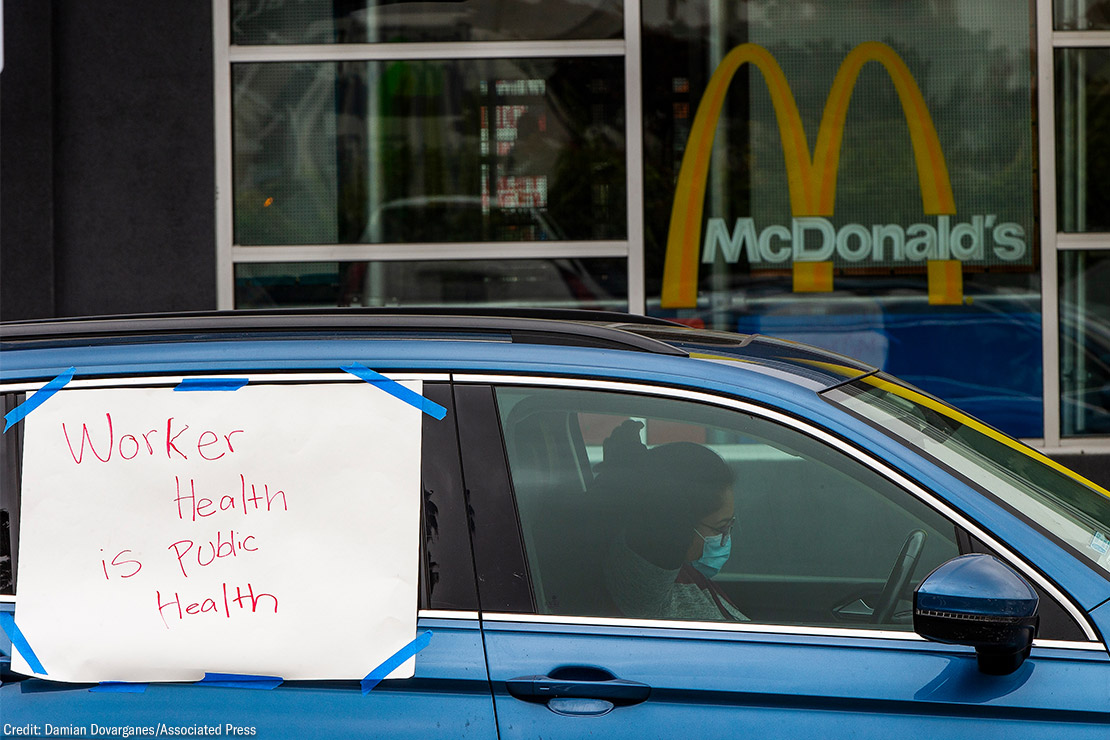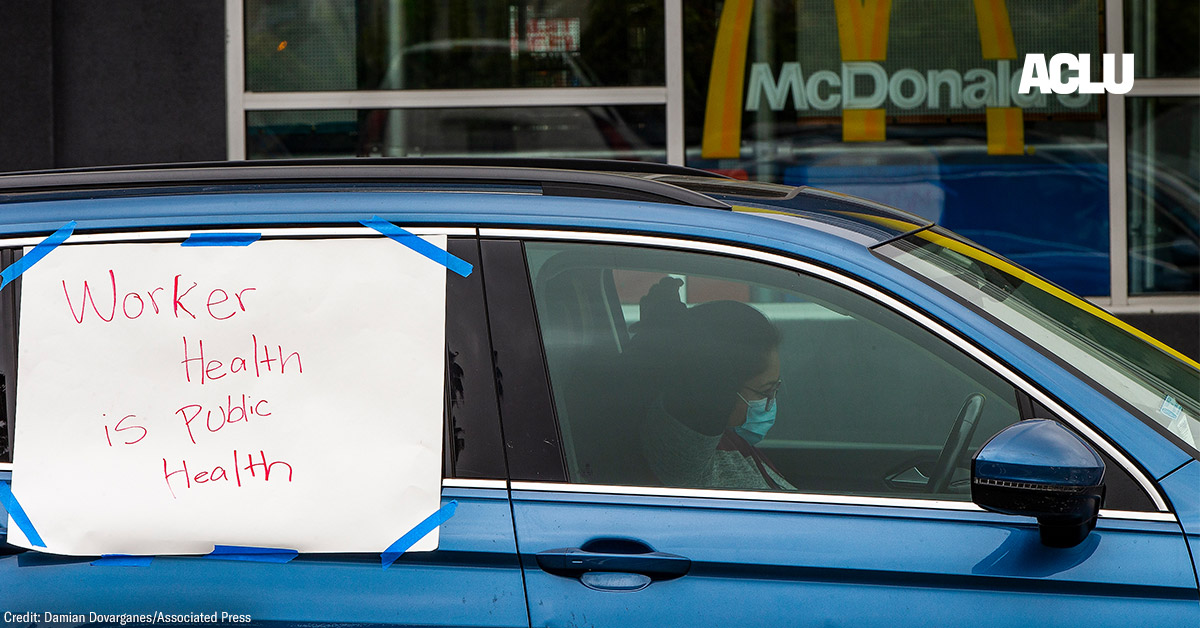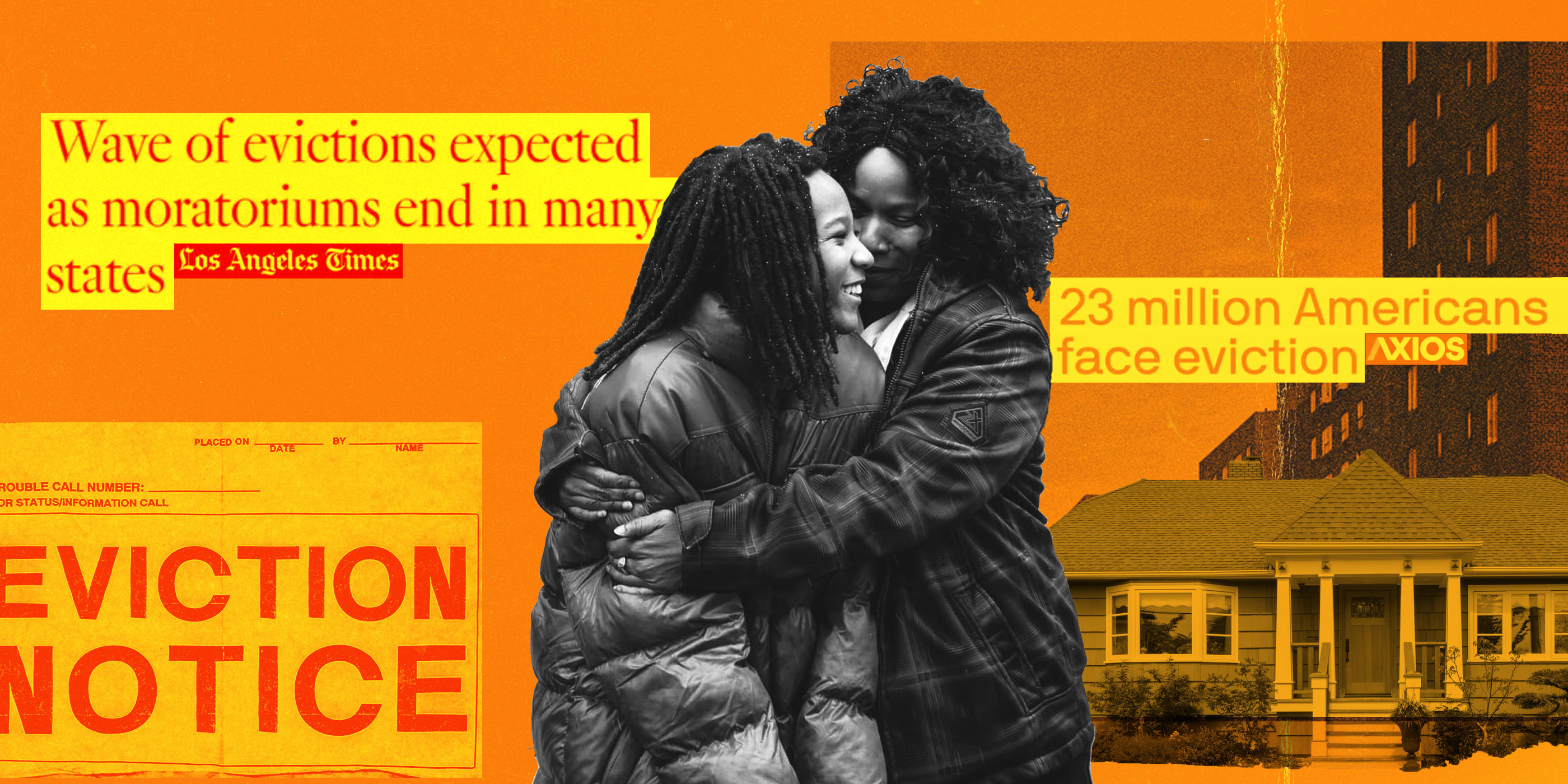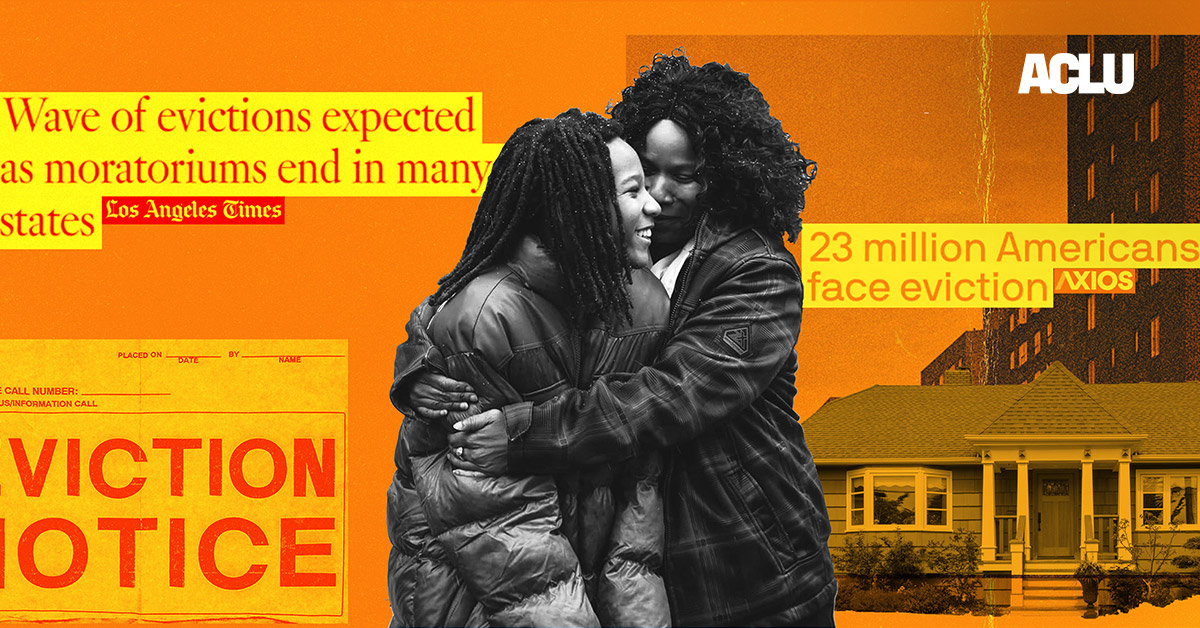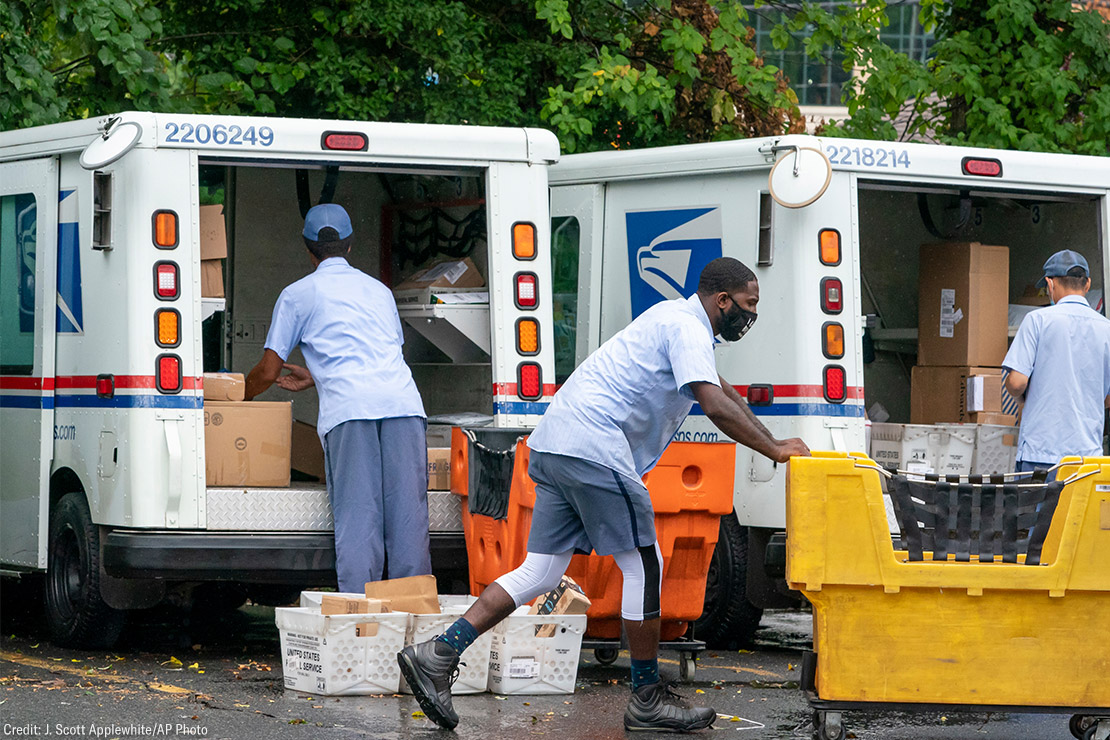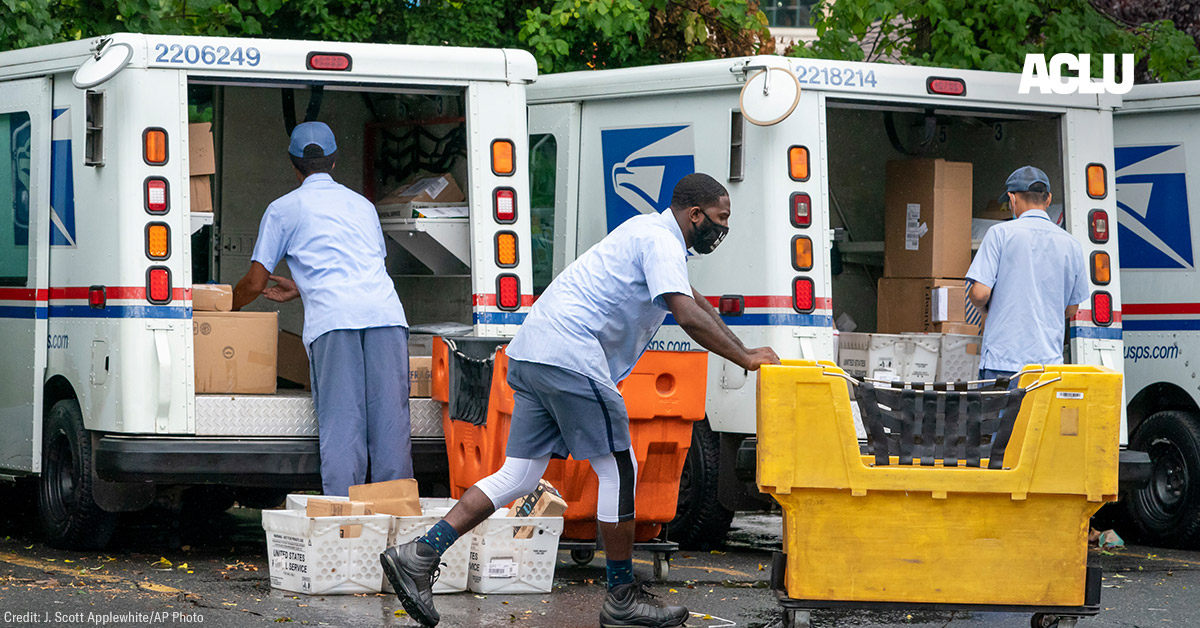Six months into the COVID-19 pandemic, it’s clear that among those suffering the most are those who typically get paid the least: the “essential workers” who tend to the sick, care for our elders, grow our food, stock our supermarket shelves, and operate the public transit necessary for these and other frontline workers to get to their jobs.
These mostly Black and Latinx workers, also disproportionately women, already live in a state of economic precariousness. For months now, they have been asked to literally risk their lives for their paychecks. In this way, the pandemic has further exposed and deepened our nation’s fault lines of racial and gender inequality.
Among the frontline workers in harm’s way are the nearly 1 million people who continue to serve up Egg McMuffins, Big Macs, and fries at the nation’s 14,000 McDonald’s restaurants. Despite the company’s vast resources — it has already paid nearly $2 billion to shareholders since the pandemic began — McDonald’s has rewarded the sacrifices of its low-wage cashiers and cooks with indifference to their safety and — when they and their loved ones get sick — refusal to grant job-protected, paid time off to stay home.
The U.S. enjoys the shameful distinction of being the only country in the developed world that doesn’t guarantee paid sick and family leave to workers. We have no choice, then, but to rely on employers to fill the void — yet they have doggedly resisted doing so. Roughly a quarter of the private workforce — more than 33 million people — are afforded no paid sick time to care for themselves, while more than 80 percent of private sector workers have no access to paid leave to care for a family member.
These numbers are shocking enough, but because they are averages, they obscure an even uglier truth: Paid sick and family leave is nearly universal among higher-paid, professional workers. These workers are more likely to be white and are the same workers who, during this crisis, are most able to work from the snug safety of their homes. Among the lowest-paid quarter of the workforce, the majority of whom are Black and Latinx workers, only half of them have any paid sick days, and just 7 percent have paid family leave. In short, low-wage workers — far more likely to be people of color relegated to these occupations due to historic discrimination — are often the ones who lack paid sick and family leave, yet need it the most.
Under normal circumstances, such figures reflect grave racial, gender, and economic inequalities. In the time of COVID-19, though, the lack of paid sick and family leave is also a matter of life and death. Without a paycheck during a needed absence from work, low-wage workers are forced to choose between earning critical income or taking care of themselves or loved ones at home who are sick.
During the COVID-19 crisis, lack of access to paid family leave inflicts distinct, long-lasting harm on women. Women comprise 60 percent of the nation’s family caregivers, so when a family member falls ill, it is overwhelmingly women who will stay home with them. And because households of color are more likely to be multigenerational, with both young children and elderly relatives at home and in need of care, this caregiving burden falls especially heavily on Black and Latinx women.
Without paid, job-protected family leave at work, those women will lose income or be pushed out of the labor force altogether. Such losses have catastrophic economic consequences, given that 64 percent of all families have a woman as the sole or primary breadwinner, a figure that is even higher in families of color. Women’s exit from work to perform unpaid family caregiving also helps sustain stereotypes about women’s suitability as workers and handicaps them in achieving the footholds necessary for on-the-job advancement. Such losses, in addition to assuring women’s continued segregation in lower-status roles and lower-wage fields, are key drivers of the gender and racial wage gap. The wage gap is even larger for women of color — while white women make $0.79 to a white man’s dollar, Black women make $0.62 and Latina women make $0.54 to the dollar. The wage gap is a penalty that is compounded over a lifetime of work and leaves older women more likely to live in poverty when they no longer work for a wage.
Poor health and safety protections, poverty wages, and occupational segregation all sustain the effects of historic discrimination, white supremacy, and patriarchy. The ACLU has a longstanding commitment to redressing the adverse effects of racism and sexism and other forms of invidious discrimination in American society. That includes decades long commitments to affirmative action in employment and paid leave reflected in our organization’s policies. It includes commitments to defend essential health care coverage to address “harsh economic and social disparities that threaten our country’s democratic foundation and the cohesion of our society.” Taking on McDonalds for failing to provide paid sick and family leave is just a piece of this work.
Given employers’ widespread failure to provide the essential benefits of paid sick and family leave, why is the ACLU singling out McDonald’s? For the same reason that we have taken on the company’s pervasive, entrenched culture of sexual harassment — McDonald’s status as one of the largest employers in the world and the biggest name in fast food means that how it does business affects not just the lives of its hundreds of thousands of workers, and their families and communities — it also sets the pace for the entire corporate food service business. Its workforce practices hold similarly enormous capacity for modeling fairness, safety, and dignity.
At this historic moment, as our nation grapples with its grievous legacy of racism, it is imperative to call out policies and practices that exacerbate inequality. Challenging corporate giants like McDonald’s to protect the Black and Latinx people keeping our country moving during the COVID-19 crisis is a civil rights fight we are proud to take on.
Ronald Newman, National Political Director, ACLU
& Louise Melling, Deputy Legal Director and Director of Center for Liberty, ACLU
Date
Thursday, August 13, 2020 - 4:30pmFeatured image
